A series of firsts: Meet Temple staff and faculty who were first-generation college students
These members of the university community share their experience and perspective as first-generation college students.

Being the first in one’s family to attend college is an experience unlike any other. It feels both rewarding and daunting to navigate new classes, programs, career prospects and other unfamiliar territory.
The first-generation student population continues to grow at Temple, with a record 40% making up the Class of 2028 alone.
In addition to the university’s numerous academic, financial and health resources, staff and faculty who were also first-generation students serve as a valuable touchpoint.
Meet a few members, who share what being a first-generation student means to them and how Temple welcomes first-generation students.
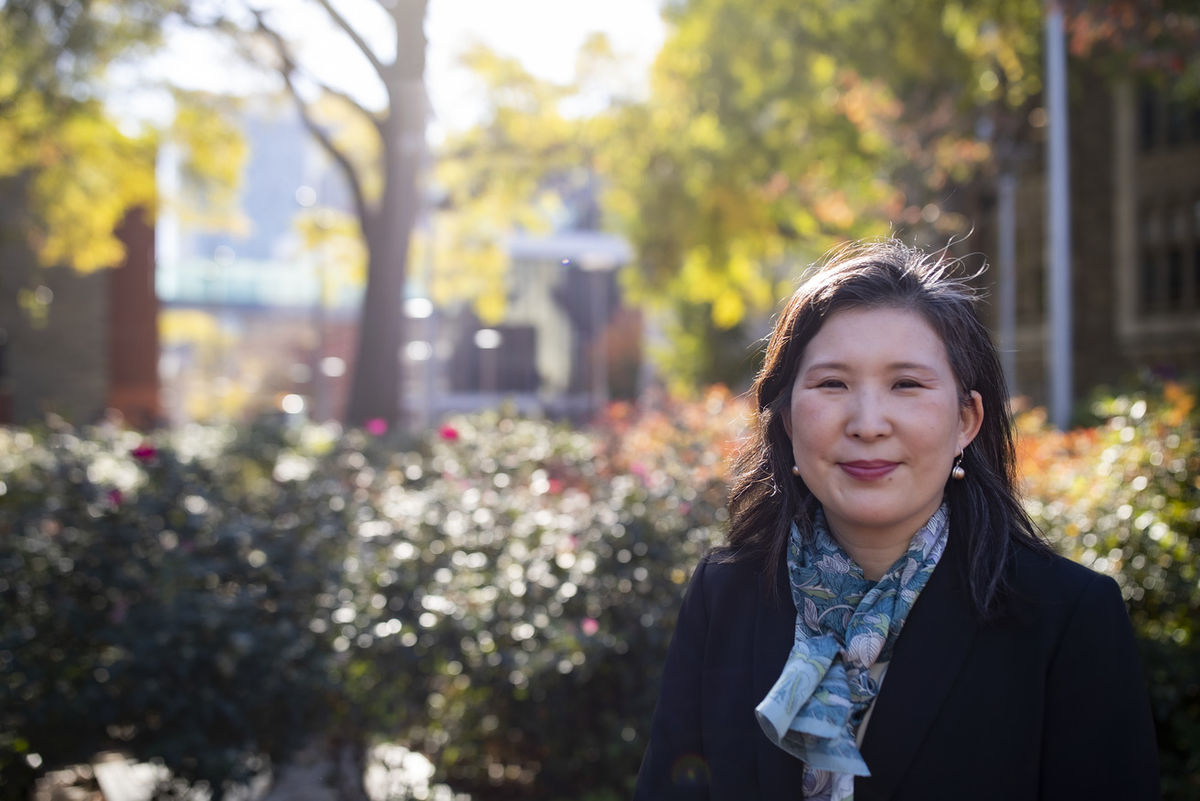 (Photography by Ryan S. Brandenberg)
(Photography by Ryan S. Brandenberg)
Linda Hasunuma
Associate Director of Inclusive Initiatives, Center for the Advancement of Teaching
PhD, political science, UCLA, 2010
What does it mean to you to be a first-generation student?
It means that you have to figure out a lot of things on your own, so sometimes you miss opportunities because you didn't know about them or how to access them. For me, being first-gen means learning how to advocate for yourself and finding mentors and peers who can help you fill those knowledge and resource gaps. It means developing relationships for guidance and support. I was very fortunate to have found mentors in fellow students, teaching assistants, faculty and employers for my campus jobs. I learned how valuable community and networks are for making the most of college and the opportunities that come after.
What was your experience as a first-generation student?
Financially and socially, it was very hard because I had to work to support myself, and I paid for college on my own with Pell Grants and financial aid. If I wasn’t working, I was at the library because I could not afford books and would need to read things on reserve (this was before things were open access and available online). As an older transfer student who could not afford the dorms, I was a commuter, so I did not have the same kind of social community and life most undergraduate students may have when they live on campus or do athletics and clubs, but I found amazing mentors through my professors, teaching assistants and peers at UCLA. It is because of those relationships I felt like I belonged in college and loved my time there. These experiences inform how I teach and mentor as well.
Why is Temple a great place for first-generation students?
The university is united in supporting first-gen students and is very proactive and intentional about the things we are trying to do to help them feel welcome and supported here. We formed a First Scholars Network with faculty, staff and folks from across the university. We have organized celebrations and an Honors society; developed programming to help faculty be more mindful about first-gen inclusion and belonging in their courses; and created opportunities to build community, connection, and valuable mentoring and professional networks. It is the genuine care and commitment of everyone involved in these initiatives that make Temple a great place for first-generation students. Faculty and staff are working hard to promote greater visibility and community for our first-gen students at Temple.
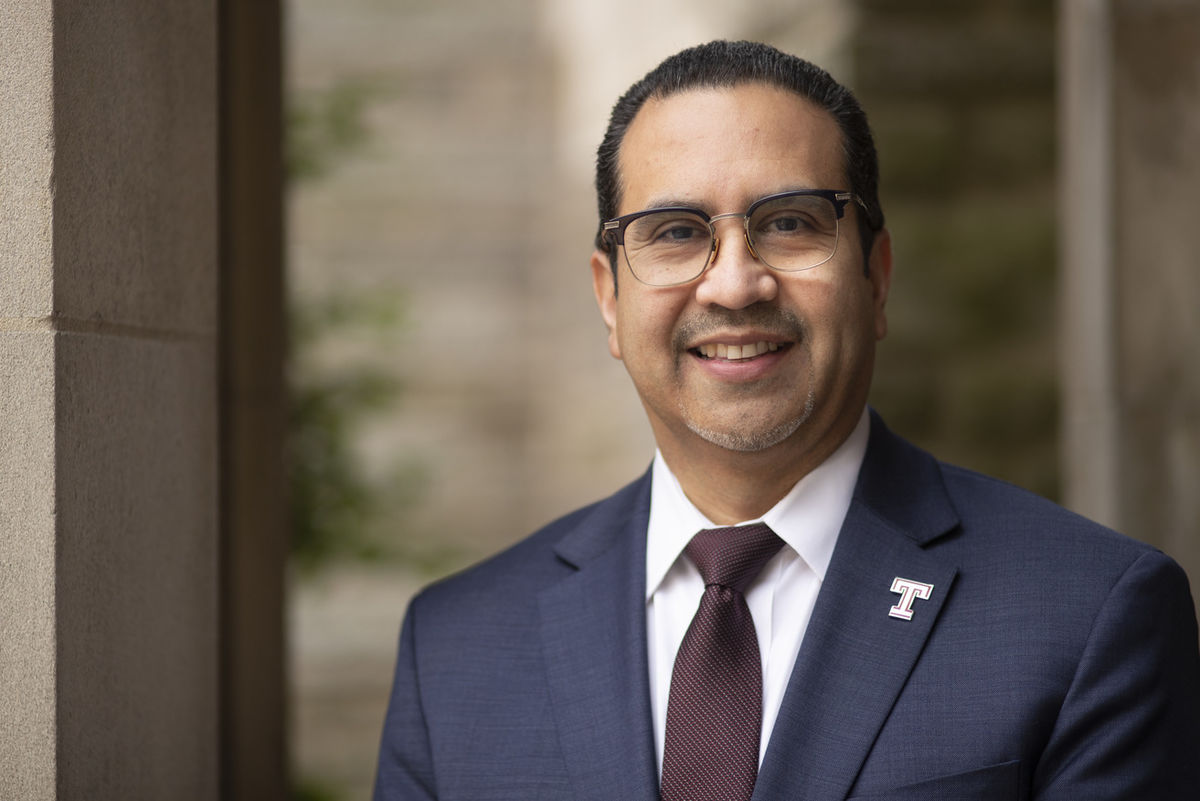 (Photography by Ryan S. Brandenberg)
(Photography by Ryan S. Brandenberg)
Jose Aviles
Vice Provost for Enrollment Management
BA, history, Rowan University; MA, higher education administration, Rowan University; EdD, educational leadership, Rowan University
What does it mean to you to be a first-generation student?
Being a first-generation student means breaking through barriers and opening doors that weren’t available before. It’s a testament to resilience and determination to change the trajectory not only of my own life but also of my family and community. It means embracing the challenge of navigating the unknown and building a foundation that others can build upon. For me, it symbolizes the transformative power of education and the hope that it brings.
What was your experience as a first-generation student?
My experience was both challenging and empowering. Growing up in poverty, there were many obstacles, from financial limitations to a lack of knowledge about the college process. I had to learn to navigate the complexities of higher education independently without the guidance many others had. But I also found a deep sense of purpose and pride. It was this experience that taught me resilience, self-advocacy and the power of persistence. Higher education opened up new possibilities, transforming my life and showing me that anything was possible.
Why is Temple a great place for first-generation students?
Temple University is a place that truly understands and values the journeys of first-generation students. As a public institution committed to access, Temple provides a range of resources and support systems tailored to meet the unique needs of students like us. The university’s commitment to diversity and inclusivity means that first-generation students are welcomed, understood and supported. There are programs, mentorship opportunities and dedicated staff ready to help students succeed. At Temple, first-generation students don’t have to walk the journey alone—they are part of a community that celebrates their background and supports their goals.
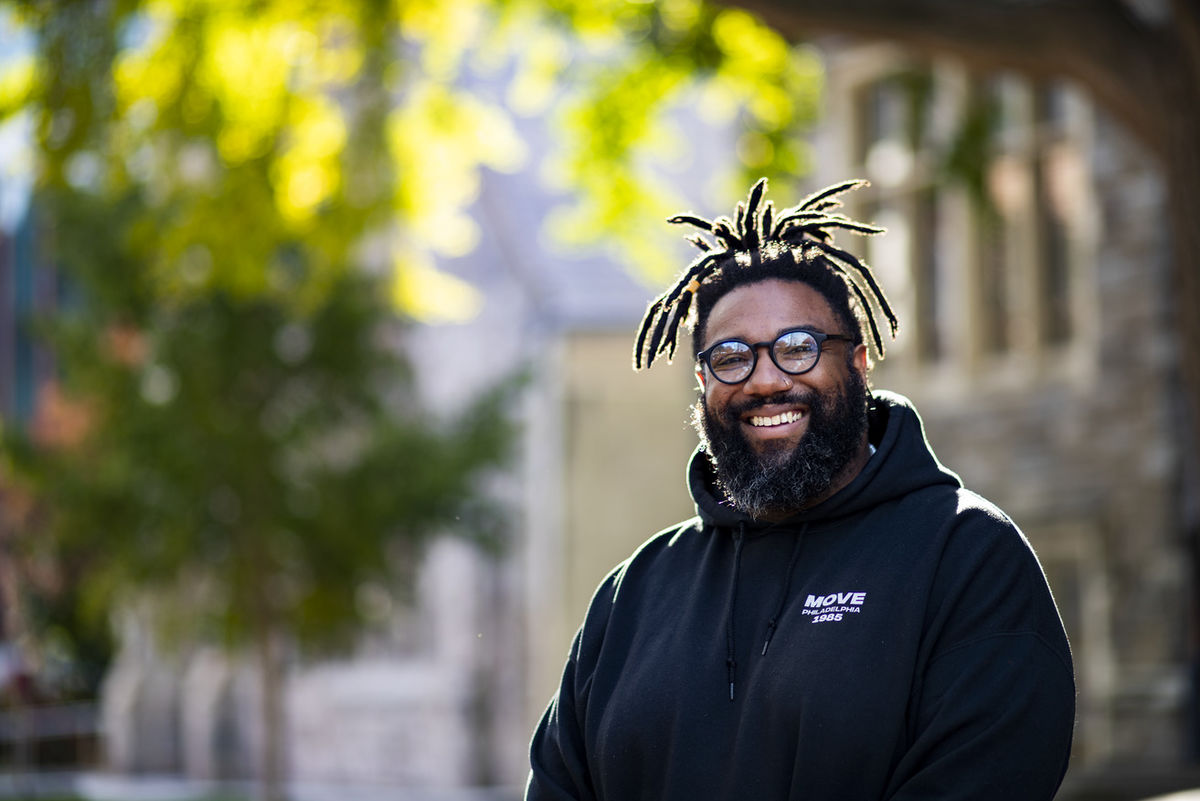 (Photography by Ryan S. Brandenberg)
(Photography by Ryan S. Brandenberg)
Elijah Rhea
Assistant Director of College Access and Persistence Initiatives, College of Education and Human Development
BA, psychology, Towson University, 2013; MEd, elementary education and teaching, Relay Graduate School of Education, 2017
What does it mean to you to be a first-generation student?
Being a first-generation student means legacy. There’s a collectivist ideal that is often felt being a first-generation college graduate, bearing a sense of responsibility to move forward in one’s education with the hopes that it can provide upward mobility. I think that when I was younger, this resonated with every decision I made as a person who didn’t want to go to college. Now I feel a responsibility to continue to show my younger siblings, cousins, etc. that this is attainable and to pay respect to my elders and ancestors.
What was your experience as a first-generation student?
Applying to college felt very daunting and out of reach. So many people around me had mentors or family to coach them, while I felt like I was lost at sea. But it gave me a huge sense of pride and confidence in myself to be able to figure things out. As I progressed through undergrad, being a first-generation student also helped me become more open to asking for support.
Why is Temple a great place for first-generation students?
There is a lot of work happening to understand the needs of first-generation college students and build out systems to support them. I have also seen a wide and diverse range of first-generation college staff and faculty that have been reflecting on their own experiences to support students here. Temple is a place where community seems to be constantly growing, and I’m excited to see how we keep expanding.
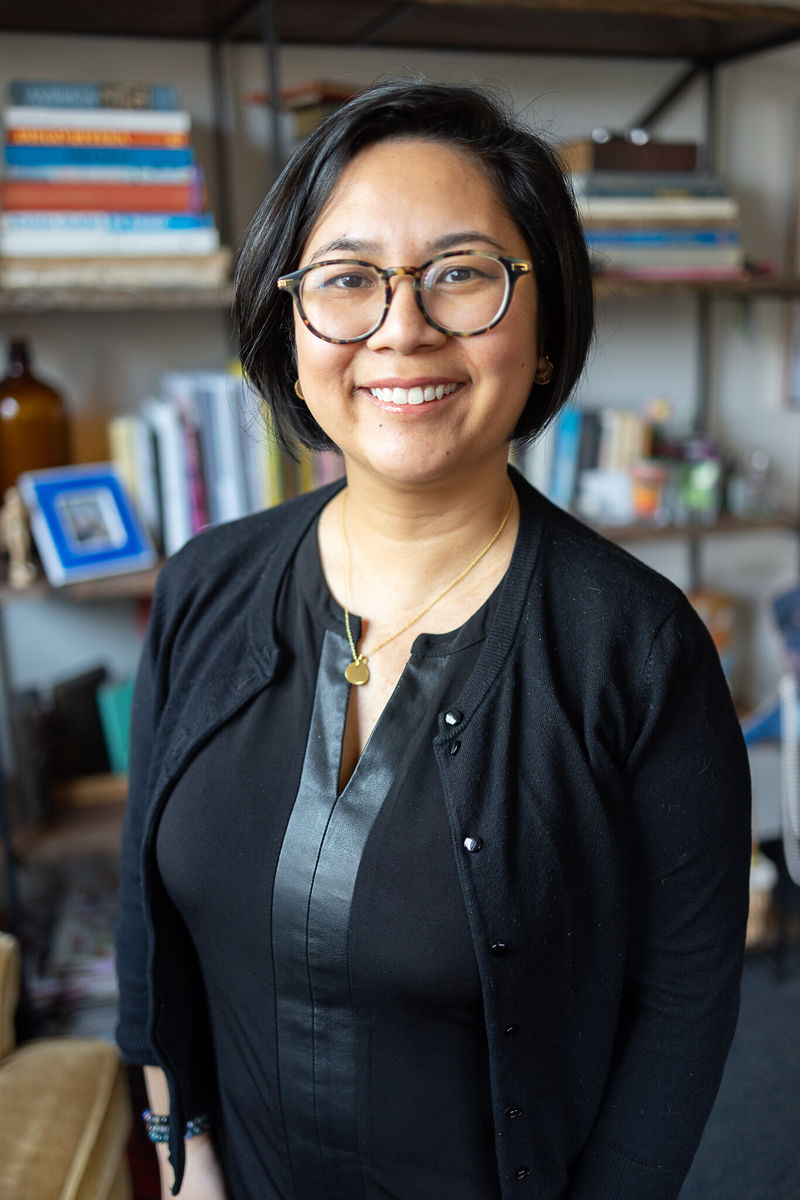 (Photography by Fernando Farell Gaxiola)
(Photography by Fernando Farell Gaxiola)
Jackie Lopez
Academic Advisor and Staff Advisor for First-Gen Honors
BA, communication and psychology, San Diego State University; MSEd, intercultural communication, University of Pennsylvania; EdD, reading/writing/literacy, University of Pennsylvania
What does it mean to you to be a first-generation student?
While my parents attended and graduated from college, they immigrated to the U.S. from the Philippines as adults, so my older sister and I had to navigate the U.S. context and system for school and college on our own. It was challenging to try to make sense of the policies, procedures and implicit knowledge of higher education, yet the fact that my parents worked so hard to make a life for us was a huge motivator for me in striving for excellence as a student and now as an educator and professional. I acknowledge this journey is not an individual or solitary one, so if I could be a supportive, caring and knowledgeable person for a first-generation student now, I am eager to show up for students in whatever way is most supportive for them.
Why is Temple a great place for first-generation students?
Temple is a great place for first-generation students because of its accessibility and deep roots in the larger Philadelphia community. We have the most brilliant, creative and socially conscious students, faculty, staff and alumni who understand the importance of authentic connections. Our community is hard-working and focuses on cultivating long-lasting relationships. This is vital for first-generation students who can thrive knowing that the community is willing to lend a helping hand and will celebrate their achievements in and outside of the classroom.
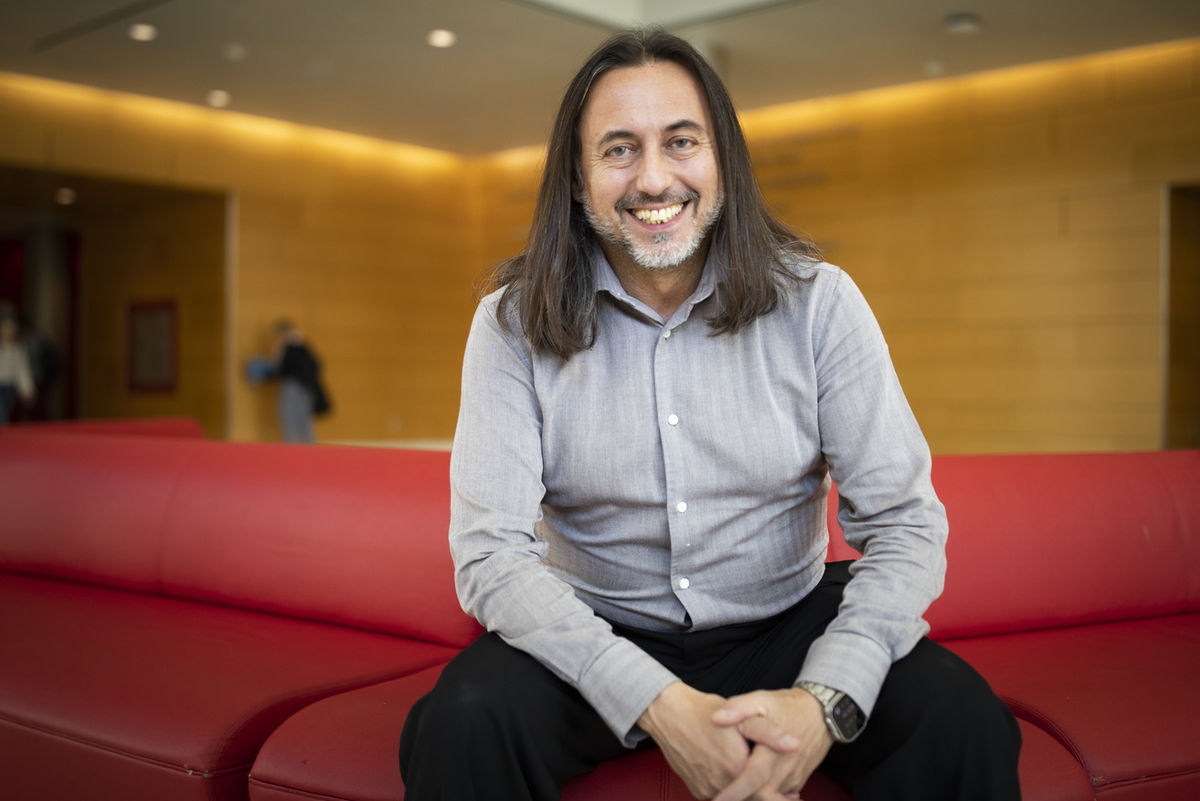 (Photography by Ryan S. Brandenberg)
(Photography by Ryan S. Brandenberg)
Miguel Mostafá
Dean of the College of Science and Technology
PhD, physics, Instituto Balseiro, 2001; MS, nuclear engineering, Instituto Balseiro, 1996
What does it mean to you to be a first-generation student?
It meant stepping into new territory and navigating college life without a road map from my family. It was very challenging for me, but at the same time it was empowering—I learned to advocate for myself, seek out resources and build a support network. This journey gave me a sense of resilience and pride, as I now became a role model in my family and community, showing that higher education was possible even for someone from a low-income family.
Why is Temple a great place for first-generation students?
Temple’s College of Science and Technology (CST) attracted 44% first-gen students in our first-year class. The main reason is that students and their families know that we care. CST offers a First Summer Math Bridge Program that helps students transition to college-level math and first-generation scholarships for students who demonstrate academic potential and economic need. It also features a dedicated first-gen section of our first-year seminar that covers registering for classes, applying for scholarships and grants, learning study strategies, and developing time-management skills. We host social events that foster community and workshops on topics such as paying for school as well as dedicated sessions on building resumes, applying for internships, and networking at Temple and beyond. There’s also the CST-sponsored and very active chapter of the Alpha Alpha Alpha national honor society for first-generation college students.
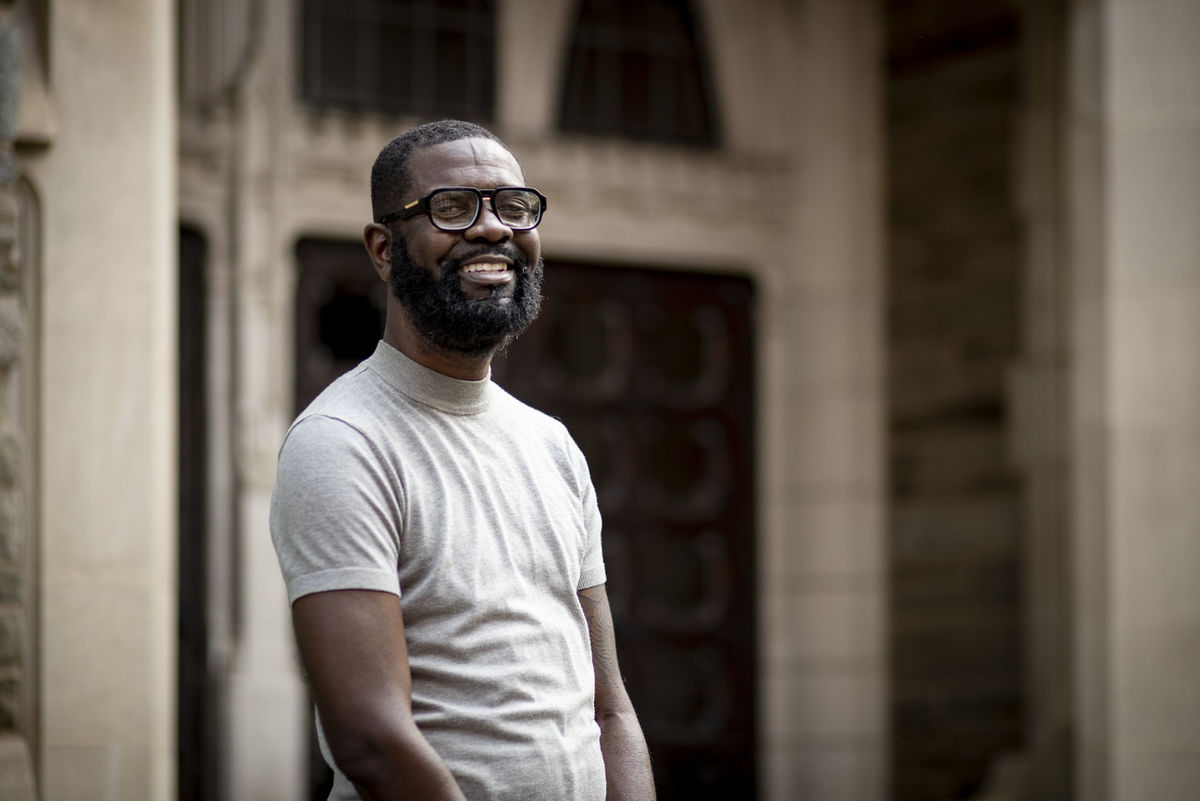 (Photography by Ryan S. Brandenberg)
(Photography by Ryan S. Brandenberg)
Nu’Rodney Prad
Director of Student Engagement, IDEAL
EdD, education/higher education administration, Temple University, 2023; MS, college student counseling and personnel services, University of Central Arkansas; BA, political science and government, University of Central Arkansas
What was your experience as a first-generation student?
As a first-generation Black college student, my educational journey was filled with excitement, but I initially faced many challenges in navigating higher education, test-taking, and building relationships with faculty and administrators. Fortunately, my institution provided mentorship programs that helped me adjust to student life, understand my core identities and ultimately achieve my goal of becoming the first person in my family to earn a college degree.


